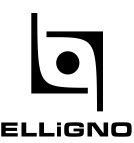Boost and STL
STL introduction: C++ collection
We begin with an introduction on the C++ collection, it’s the bread and butter when programming. The Standard Library is a fundamental part of the C++ Standard. It provides C++ programmers with a comprehensive set of efficiently implemented tools and facilities that can be used for most types of applications. I briefly present the fundamental concepts in the STL. We assume previous knowledge of the basic language features of the C++, in particular, templates (both function templates and class templates).
ÂBelow an example of use of the STL container.
| template<typenameRange>void printRange( const Range& aRange)
{ std::cout << “We are printing the range\n”; typedef boost::range_iterator<Range>::type iter_type; typedef std::iterator_traits<iter_type>::value_type value_type; std::copy( boost::begin(aRange), boost::end(aRange), std::ostream_iterator<value_type>(std::cout,“\n”)); } |
Same function by using the Standard template Library (STL)
| template<typenameCONT> // containervoid print_container( constCONT& aCont2Print)
{ // typename because CONT is a argument template // we have to give an hint to the compiler typedeftypenameCONT::value_type ctype; // define an iterator and a const iterator typedef typename CONT::iterator iter_range; typedef typename CONT::const_iterator citer_range; // initialize range iterators citer_rangew_beg = aCont2Print.begin(); citer_rangew_end = aCont2Print.end(); std::copy(w_beg,w_end, std::ostream_iterator<ctype>(std::cout,” “)); std::cout << “\n”; } |

Leave a Reply
Want to join the discussion?Feel free to contribute!